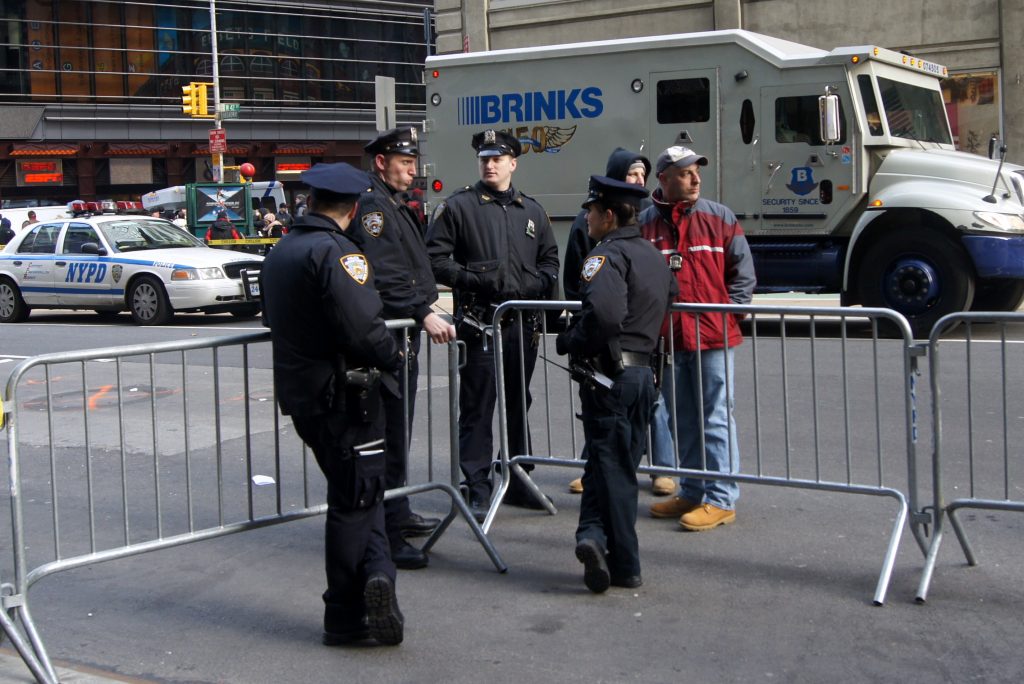
Image Credit: Cocoaguy, CC BY-SA 3.0 via Wikimedia Commons
By Saul Roth
Furthermore, officers are constantly being exposed to dead bodies. There are many different scenarios whereby they may be exposed to dead bodies. Many times they respond to homes in which elderly people have passed on. Police officers also see victims of suicides and murders. Car accident fatalities, however, are more common. These scenes can be very gruesome. Officers are also called to scenes of multiple deaths and injuries. These scenes range from mass shootings to accidents of common carriers (Karlsson, 2003).
Incidents involving children can particularly affect police officers. Investigating child abuse in which a child has been murdered, injured or sexually abused has lasting negative effects on officers. Many officers have their own children and are reminded of them. Children are innocent and cannot fend for themselves. The thought of an adult causing pain or injury to a child may stress officers at the scene as well as those involved in the investigation (Karlsson, 2003).
When officers are questioned about disturbing incidents in their career, they can usually come up with at least one that continues to haunt them. The officer will usually remember everything about the incident no matter how long ago the incident occurred. Even though the officer might have experienced similar circumstances after the incident, the first one usually remains clear in the officer’s mind. Most officers report that they are inadequately prepared before handling disturbing incidents and are not supported by their superiors afterward. Many officers report feeling fine right after a disturbing incident, only to have feeling days after (Karlsson, 2003). Officers involved in large-scale casualties feel helpless and guilty during and after the incident. Officers assigned to investigate murders and child abuse spend long hours on a case. Many experience burnout and must either retire are transfer to another unit (Karlsson, 2003).
Our society is more violent today than at the beginning or middle of the twentieth century. The rate of civilians being victims of violence is on the rise (Lennings, 1997). It only makes sense that police officers would also experience more violence and also become victims. Violence is a large stressor for the general public as well as for police. A person from the public might be a victim one time to a violent incident, but police officers are constantly observing, acting, and becoming victims of violence. For many police officers, this constant exposure develops into a stress disorder (Lennings, 1997)
The most common call for violence for a police officer is a domestic dispute assignment (Lennings, 1997). This type of call typically accounts for about 50 percent of the violence in a police officer’s career. About 20 percent of police officer injuries are from domestic disputes. For example, a large police force that handled over 1 million calls for the year had over 1,000 that involved assaults. One caused the death of one of that department’s police officers. This is just the call that originally went through communications of assaults. Many calls are assaults after responding to the scene (Lennings, 1997).
How a police officer responds to the stress of violence depends upon other factors in that police officer’s life and experiences. Personal factors such as the officer’s age, time on the force, rank, gender, personality, and family life are important to how the officer handles violent stress. The status of the officer’s current family is stressors to many officers experiencing violence. How the officer’s family worries about him/her every day and how they will react to his/her violent experience play an important role in stress management. Organizational factors can also alter how an officer reacts to violence. How the officer’s department reacts to the officer’s use of violence can cause a lot of stress for the officer. Though many departments offer counseling and debriefing, some officers are very suspicious of how confidential these services actually are (Lennings, 1997).
The police culture of responding to violence is one of the major stressors inherent in the job. Police officers are cultured into downplaying violent events. The officers feel they have to display a “macho” image. Officers usually will not portray violence as a large stressor in police studies (Lennings, 1997). They will suppress their emotions and downplay the psychological impact of the violence. Their emotions make them feel uncomfortable, as they worry about being seen as incompetent, untrustworthy, not macho, and as though they possess a weaker type of personality. It is also an officer’s way of coping (Lennings, 1997).

Recent Comments